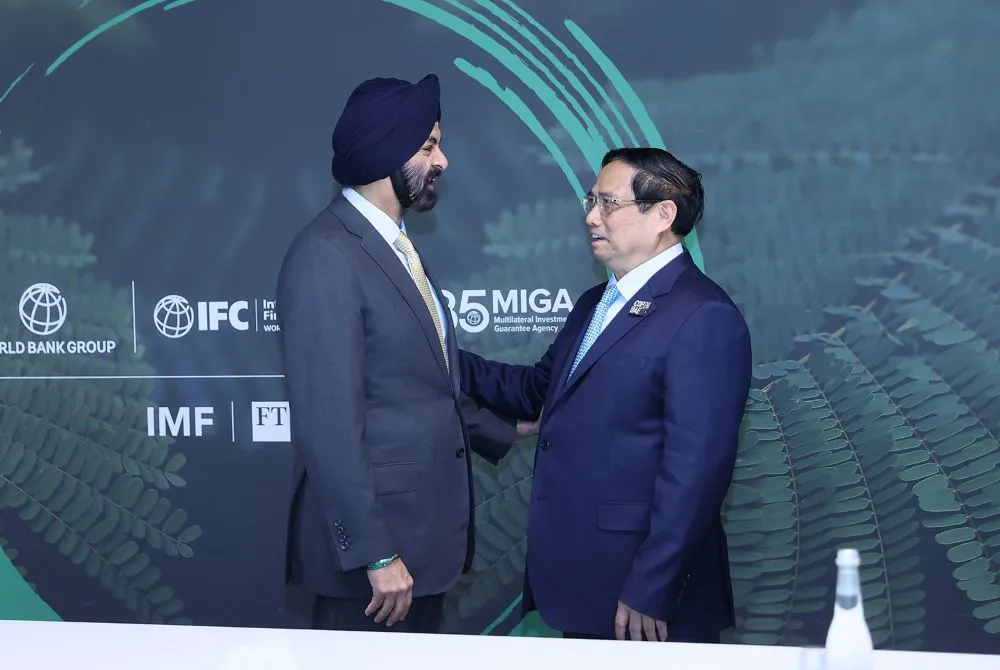World Bank to step up US$5-7 billion loan for Vietnam
The majority of the loan will be poured into green transition, in which the World Bank is one of the biggest lenders.
The World Bank and Vietnam are working to speed up several major projects in the country, which cost an amount of US$5-US$7 billion in the next three years.
| Vietnam’s Prime Minister Pham Minh Chinh and the World Bank’s President Ajay Banga at the 2023 United Nations Climate Change Conference (COP28) in Dubai on December 2 (local time). Photo: Nhat Bac/VGP |
The news was shared at the meeting between Vietnam’s Prime Minister Pham Minh Chinh and the World Bank’s President Ajay Banga at the 2023 United Nations Climate Change Conference (COP28) in Dubai on December 2 (local time).
Projects under the loan are Renewable Energy Accelerating Change (REACH), one million hectares of high-quality, low-carbon rice program, climate-resilient infrastructure in the Mekong Delta, green transition, digital transformation, and the Hanoi-Hoa Lac Railway.
Prime Minister Chinh and Ajay Banga agreed to boost the key projects for Vietnam’s growth momentum.
In reality, Vietnam needs billions of dollars for energy transition and the World Bank is one of the big lenders in this cause.
The two sides also discuss strategies for addressing upcoming legal, regulatory, knowledge, and partnership obstacles.
On this occasion, the Vietnamese Prime Minister requested the World Bank to set up a regional office in Vietnam and pledged to offer favorable conditions for the bank’s operations.
Ajay Banga said the bank will seriously take into account the request and highly appreciated the Government of Vietnam for its climate response and green transition, especially the one million hectares of high-quality, low-carbon rice program, listing it as one of the World Bank’s green agricultural role models that help reduce methane and raise farmers’ income through carbon credits.
He suggested Vietnam join the global carbon markets and pledged to support the country’s process and in delivering on climate targets.
Regarding Vietnam’s energy transition, World Bank Country Director for Vietnam Carolyn Turk has underscored some key issues for the government to consider, including the evolution of sector policies and planning by keeping energy transition at its core, eliminating barriers to renewable energy development, upgrading the power grid to keep pace with the growth of new clean energy technologies, focusing on energy efficiency, a systematic approach to mobilizing financial resources needed for the energy transition which are estimated to reach $12-$14 billion annually.









